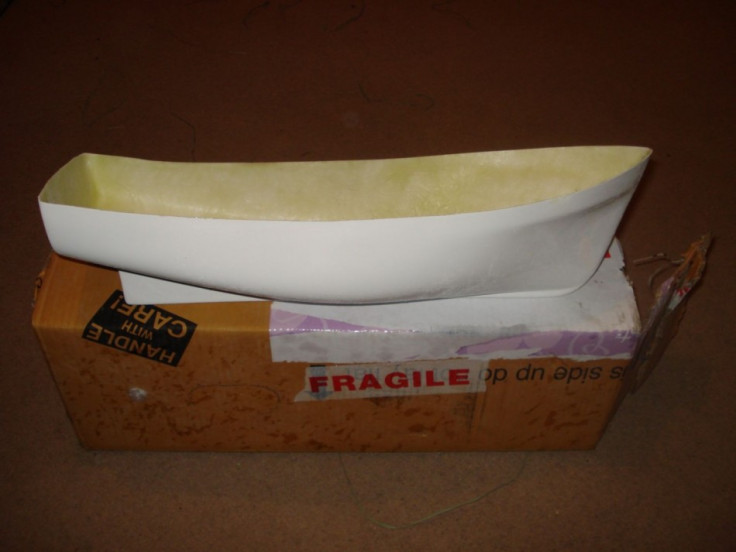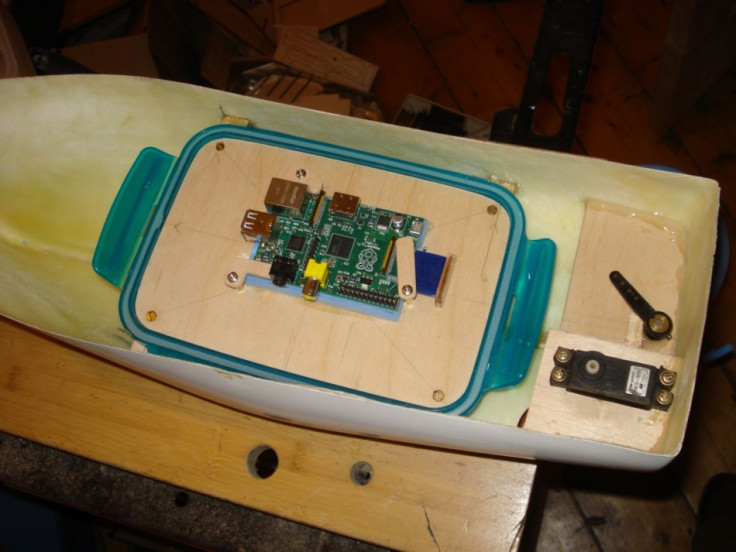Raspberry Pi: FishPi Project Could Launch Kickstarter Fundraising Campaign
Udate: Two-way communication will indeed be used to emergency steer the FishPi
The creator of the FishPi project - which uses a Raspberry Pi mini-computer to allow a boat to guide itself across the sea - is thinking of putting the idea on Kickstarter to raise funds.

Project founder Greg Holloway says the equipment could be sold as kits for anyone to build.
"I'm looking at taking the project to Kickstarter when it launches in the UK. I think FishPi, with our open source and not-for-profit aspirations, aligns well with [Raspberry Pi's] ethos and that of their users," he told IBTimes UK.
"I'm excited by the idea of being able to offer FishPi as kits at an affordable and practical price point and with the success that Kickstarter can provide I think FishPi has a great future in autonomous robotics."
The FishPi will be a 'marine unmanned surface vessel' that is able to cross the Atlantic unaided, taking scientific measurements as it travels. The idea came about because Holloway wanted to do something outside conventional thinking that was an educational use of the Raspberry Pi.

He says a working version of the proof-of-concept vehicle (POCV) is nearly finished.
"The key to the POCV is simplicity. It could be compared to learning to crawl, before we start to walk with the prototype and then run with the first production model," Holloway revealed on the FishPi forums.
When the hardware is completed, the software development will commence and he admits he will need a hand with that side of the FishPi's development.
"I'm a hardware engineer by trade so the software will be a challenge for me. I'm hoping that once things get started and we have a definitive hardware configuration and example code, that people who have previously shown an interest in the software development will come forward and lend a hand," he said.
The idea is to use the Python programming language because it is the language of choice for the Raspberry Pi Foundation and Holloway thought it "prudent to follow the foundation's lead".
Data-logging and two-way communications via satellite are mentioned among the expected capabilities and functions of the FishPi.
Holloway does mention that the FishPi will also be connected to a base-station, which houses a keyboard, mouse and screen - although it is not clear if he will be able to control the vessel if it gets into trouble or it will remain autonomous.

UPDATE: Holloway has been in touch to clarify the use of a base-station with the FishPi and to talk about the decision to go with a POCV instead of a prototype:
"The base-station is solely for the use of the Proof-Of-Concept Vehicle (POCV). It will be connected to the POCV when it is out the water. The base-station is there to make the connection of a keyboard, mouse and screen as simple as possible. With the integration of the Raspberry Pi into the POCV, I didn't want to have to keep connecting and disconnecting cables, or removing covers. Using a single plug, which can be disconnected quickly was what I decided on instead. In retrospect, and this is what I plan for the prototype and on, I should have just connected a wifi card and used vnc or similar to gain access. At the time I was concerned over available power, adding in a wifi would have caused problems.
"The POCV will not be using two way communications, that feature will only be used on the prototype, and the production FishPi.
"The two-way communication will indeed be used to emergency steer the FishPi, alter or add waypoints, change speed et al, along with issuing commands such as halting the vessel to take measurements, photographs, or to conserve power.
"When I started with FishPi I had no previous experience in the design, construction, or any practical knowledge of the software requirements of autonomous control. I went with a Proof-Of-Concept, instead of going straight into a prototype, so that I had a better understanding of what would be required, and how it could be done. Compared to the POCV, the prototype will be a whole different kettle of fish."
© Copyright IBTimes 2025. All rights reserved.




















